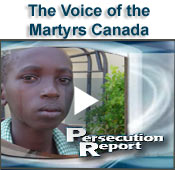Today in our local newspaper there was an appeal for volunteer bell-ringers for the seasonal Salvation Army fund drive. I've done this a couple of times before, when I worked with the youth group at church, but it's been quite awhile now, and I thought, with times like these, the Salvation Army can surely use all the helpers it can get, so I volunteered.
This reminded me of some reading I did last summer about the Salvation Army and it's founder, William Booth. One of the Army's Citadel bands had performed locally. As is typical, they were spectacular! Did you know that many of the finest contemporary band compositions and arrangements are coming from Salvation Army musicians? Thinking about that made me curious- why did this Christian ministry to the poor have such an emphasis on it's members being fine musicians? And why specifically the focus on brass band ensembles?
The research I did was fascinating, to say the least. When William Booth founded the Army in London in 1865, he felt passionately called to serve the poorest, most depraved residents of the city in a way that he felt the church was not able to do. A spell-binding speaker/preacher, he spoke in many dangerous slum environments, sometimes ending his sermons with blood running down his face from the rocks thrown at him by belligerent bystanders. Despite the mockers, he was successful in winning over many skid-row alcoholics, prostitutes, and thieves with his message of Christ's compassion. There remained, however, the necessity of getting them on a new path of life. He tried to help them enter into the life of existing churches in the city, but these unwashed, uncouth people were uncomfortable, and sometimes unwelcome, in ordinary congregations. Booth decided to create a church just for them. Since most were unused to discipline, he formed them into a quasi-military structure, giving leadership responsibility to people to whom it had never been entrusted before, and using a merit system that allowed new believers to rise through the ranks of the organization, a system still used today.
He struck upon a plan for those who were brand new to their redeemed lifestyle: he gave them each an instrument to play, and had them come with him when he went out to preach in the streets of London. Of course, they didn't play well, at least, not at first. But the sight of them, many notorious in their neighborhoods, soberly playing hymns, was moving to many who knew them, and attracted positive attention from the crowds. General Booth believed it was a kind of spiritual warfare to have these newly converted people with him, playing music and serving as a sort of peaceful bodyguard. Thus the tradition was born, and continues today. Now, the Army produces some of the best brass band musicians the world over.
In his later years, General Booth was asked to give a speech to an audience that included the British Royal Family, where he decided to give the assembled crowd a charge, based on his philosophy of ministry to the poor. What is well remembered was the rousing end, where he cried out, "Others! Others! Others!", a cry taken up by the crowd. What a summary of the life-work of this great man!
Vachel Lindsay wrote an incredible poem, with a heart-wrenching picture the heavenly celebration by those "others" in honor of General William Booth, and describes it's inspiration this way:
"The poem was built in part upon certain adventures while singing these songs. When I was dead broke, and begging, in Atlanta, Georgia (U.S.A.), and much confused as to my next move in this world, I slept for three nights in The Salvation Army Quarters there. And when I passed through Newark, New Jersey, I slept in The Salvation Army Quarters there. . . . I know The Salvation Army from the inside. The Army was struggling with what General Booth called the submerged tenth of the population. And I was with the submerged.
"'General Booth' went into the lowest depths of London, with malice aforethought, with deliberate intention to rescue the most notoriously degraded, those given up by policeman, physician, preacher, and charity worker. . . He wanted to find those so low there were none lower. He put them into uniform. He put them under military discipline. He put them in authority over one another. He chose them musical instruments and their astonishing tunes. The world has forgotten what a scandal to respectable religion the resulting Army was when it began. It was like the day St. Francis handed all his clothes to the priest, or the day he cut off the hair of St. Clara.
"I set (my poem) to a tune that is not a tune, but a speech, a refrain used most frequently in the Meetings of The Army on any public square to this day."
'General William Booth Enters Heaven'
(BASS DRUM BEATEN LOUDLY)
Booth led boldly with his big bass drum-
(Are you washed in the Blood of the Lamb?)
The Saints smiled gravely, and they said, 'He's come.'
(Are you washed in the Blood of the Lamb?)
Walking lepers followed, rank on rank,
Lurching bravos from the ditches dank,
Drabs from the alleyways and drug fiends pale-
Minds still passion-ridden, soul-powers frail;
Vermin-eaten saints with mouldy breath,
Unwashed legions with the ways of Death-
(Are you washed in the Blood of the Lamb?)
I(BANJOES)
Every slum had sent its half-a-score
The round world over. (Booth had groaned for more.)
Every banner that the wide world flies
Bloomed with glory and transcendent dyes.
Big-voiced lassies made their banjoes bang;
Tranced, fanatical, they shrieked and sang-
'Are you washed in the Blood of the Lamb?'
Hallelujah! It was queer to see
Bull-necked convicts with that land made free.
Loons with trumpets blowed a blare, blare, blare,
On, on, upward through the golden air!
(Are you washed in the Blood of the Lamb?)
II(BASS DRUMS SLOWER AND SOFTER)
Booth died blind, and still by faith he trod,
Eyes still dazzled by the ways of God.
Booth led boldly, and he looked the chief,
Eagle countenance in sharp relief,
Beard aflying, air of high command,
Unabated in that holy land.
(SWEET FLUTE MUSIC)
Jesus came from out the court-house door,
Stretched His hands above the passing poor.
Booth saw not, but led his queer ones there,
Round and round the mighty courthouse square.
Then in an instant, all that blear review
Marched on spotless, clad in raiment new,
The lame were straightened, withered limbs uncurled,
And blind eyes opened on a new, sweet world.
(BASS DRUMS LOUDER)
Drabs and vixens in a feast made whole!
Gone was the weasel-head, the snout, the jowl!
Sages and sibyls now, and athletes clean,
Rulers of empire, and of forests green!
(GRAND CHORUS OF ALL INSTRUMENTS. TAMBOURINES TO THE FOREGROUND)
The hosts were sandalled, and their wings were fire!
(Are you washed in the Blood of the Lamb?)
But their noise played havoc with the angel-choir.
(Are you washed in the Blood of the Lamb?)
Oh, shout Salvation! It was good to see
Kings and Princes by the Lamb set free.
The banjoes rattled and the tambourines
Jing-jing-jingled in the hands of Queens.
(REVERENTLY SUNG, NO INSTRUMENTS)
And when Booth halted by the curb of prayer,
He saw his Master through the flag-filled air.
Christ came gently with a robe and crown
For Booth the Soldier, while the throng knelt down.
He saw King Jesus. They were face to face,
And he knelt a-weeping in that holy place.
Are you washed in the Blood of the Lamb?
The November 30 Day Thanksgiving Challenge
Subscribe to:
Post Comments (Atom)















3 comments:
Thanks for sharing the fascinating story. I did not know that salvation army was founded more than a hundred years ago. Knowing people like you volunteer to ring the bell, I will happy to contribute :)
Thank you for this very interesting and informative post, Joyce! I enjoyed the poem by Vachel Lindsay, too; now I'm trying to remember what else he wrote...I think he was from Illinois, wasn't he?
In this time when so many charities are struggling, yet we hear about financial abuses in some, it's hard to know sometimes which organizations will put your donation to best use. The Salvation Army is one I've always believed in, and after reading this, I'll dig a little deeper in my pockets this year when I see the bell ringers.
Rose, Vachel Lindsay was from Springfield, IL. He also wrote something called "Congo" and "Abraham Lincoln Walks At Night", among others.
Post a Comment